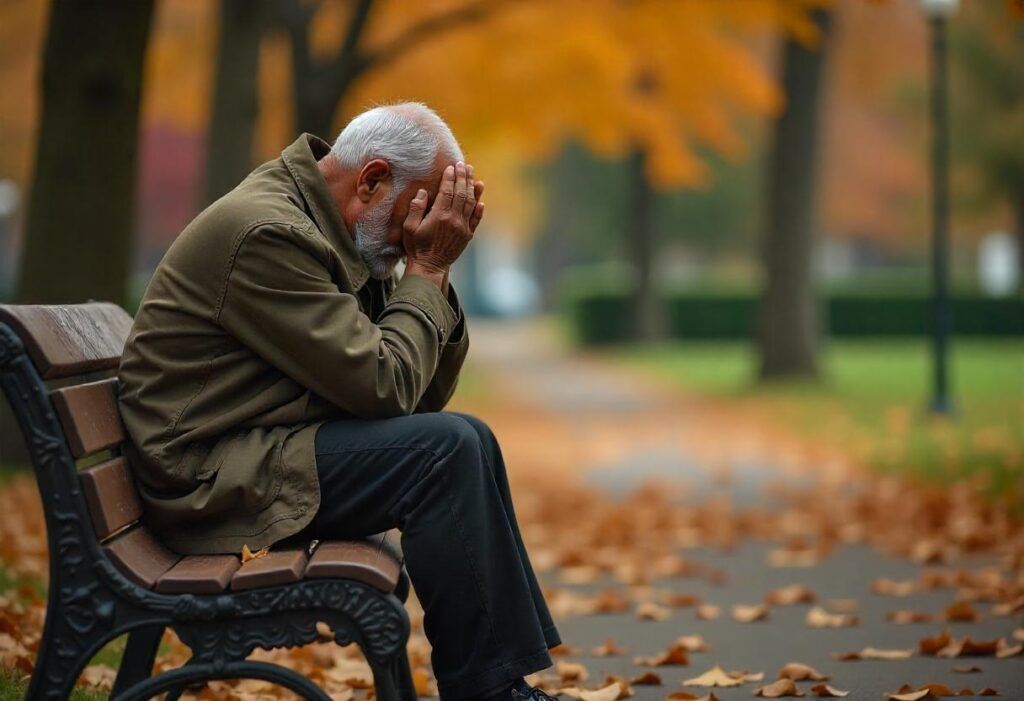
Understanding Trauma and PTSD: Pathways to Healing and Recovery
Education & Awareness
Trauma is a deeply distressing experience that can have long-lasting effects on an individual’s mental, emotional, and physical well-being. Post-Traumatic Stress Disorder (PTSD) is a mental health condition that can develop after experiencing or witnessing a traumatic event, such as abuse, violence, accidents, natural disasters, or military combat.
Dr. David Rex Orgen emphasizes that trauma is not just about what happened—it’s about how the mind and body respond to the event. PTSD symptoms may include flashbacks, nightmares, severe anxiety, emotional numbness, and difficulty coping with daily life. If left untreated, trauma and PTSD can significantly affect relationships, work, and overall quality of life.

Encouragement & Support
“Healing from trauma is possible, but it requires courage, support, and the right resources,” says Dr. Orgen. Many trauma survivors struggle with feelings of shame, guilt, or helplessness, believing that they should “just move on.” However, healing is a process, not a quick fix.
Dr. Orgen reassures individuals that acknowledging trauma is the first step toward recovery. Seeking professional help, practicing self-care, and engaging in supportive communities can make a significant difference in overcoming PTSD.
Community Engagement
Dr. Orgen encourages individuals to reflect on their experiences with trauma:
How has this experience affected my emotions, thoughts, and behaviors?
Am I avoiding certain places, people, or situations because of my trauma?
What small steps can I take to begin the healing process?
By opening up about their experiences—whether through therapy, support groups, or journaling—individuals can start reclaiming their sense of safety and control.
Resource Sharing
To help individuals manage trauma and PTSD, Dr. Orgen highlights several effective coping strategies:
Trauma-Focused Therapy: Working with a trained therapist to process traumatic memories and develop coping mechanisms.
Cognitive Behavioral Therapy (CBT): Identifying and reframing negative thoughts that stem from trauma.
Eye Movement Desensitization and Reprocessing (EMDR): A specialized therapy that helps process distressing memories.
Grounding Techniques: Using mindfulness and deep breathing to stay present and reduce anxiety.
Healthy Lifestyle Habits: Regular exercise, proper nutrition, and adequate sleep to support emotional resilience.
For those looking to understand trauma and PTSD further, Dr. Orgen recommends The Body Keeps the Score by Dr. Bessel van der Kolk, a leading expert on trauma recovery.
Advocacy & Policy Influence
Dr. Orgen advocates for greater mental health support for trauma survivors through:
Accessible trauma-informed care in hospitals, schools, and workplaces.
Mental health education programs that raise awareness about PTSD.
Stronger policies to support veterans, abuse survivors, and first responders who experience high levels of trauma.
He believes that no one should suffer in silence, and society must provide compassionate support for those affected by trauma.
Promote InspireMind Global’s Mission
Through InspireMind Global, Dr. Orgen and his team work to spread awareness about trauma recovery and mental health resilience. Their programs include:
Workshops and training sessions on recognizing and managing PTSD.
Support groups for trauma survivors seeking connection and healing.
Community outreach initiatives to reduce stigma around PTSD and encourage professional treatment.
Drive Conversations
Dr. Orgen shares the story of Maria, a survivor of domestic violence. After years of suppressing her trauma, she struggled with panic attacks, nightmares, and trust issues. With the help of CBT and a strong support network, she gradually rebuilt her life, finding strength in her healing journey.
Her story serves as a reminder that trauma does not define a person—resilience does.
Encourage Preventative Care
Dr. Orgen stresses that early intervention is crucial for trauma recovery. He encourages individuals to:
Seek help early rather than waiting for symptoms to worsen.
Build a strong support system of trusted friends, family, or professionals.
Practice self-compassion and recognize that healing takes time.
Engage in stress-relieving activities such as meditation, art, or outdoor walks.
He believes that everyone deserves to live free from the weight of past trauma—and healing is always possible.
Closing
Trauma and PTSD can be overwhelming, but they are not life sentences. With the right support, therapy, and self-care strategies, individuals can reclaim their sense of peace and well-being.
“Healing doesn’t mean the damage never existed. It means the pain no longer controls your life.”
For more insights on trauma recovery and mental wellness, stay connected with InspireMind Global, where healing begins with understanding and support.
Recent Posts
The Sickness That Turned a Family’s World Around
When Fear Moves Through a Community
Why People Do What They Do
Tags
+1 (614) 753-3925
info@inspiremindglobal.com




